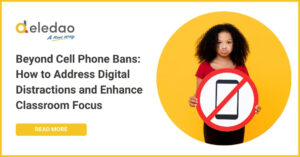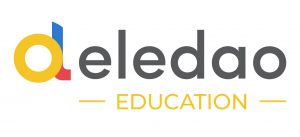
As the school year routines fall into place, K-12 administrators are once again navigating the ongoing challenge of managing digital distractions in the classroom. Tech-savvy students often find ways to bypass school device filters, using school-issued devices to access gaming content or trending videos.
Maximizing Tech Investments While Minimizing Classroom Distractions
IT teams are left constantly updating allowed and blocked lists, while teachers, in turn, act as digital gatekeepers, losing valuable instructional time as they close tabs and lock browsers to maintain classroom control, leaving less time for meaningful engagement with students and distracting from the core mission of improving student outcomes.
For school and district leaders, the challenge is clear: how to better support teachers and IT staff while ensuring that the significant investments in educational technology are being maximized to enhance student learning, not detract from it. To that end, many school districts are moving forward with policies to limit or ban cell phone use, with 14 states already enacting stricter regulations. The rationale for these decisions is clear, as limiting cell phone access during the school day positively impacts student mental health, reducing cyberbullying, and enhancing academic performance.

As schools enforce cell phone bans, attention increasingly shifts to school-issued devices, which hold the potential to become the next significant source of distraction in the classroom. The issue extends far beyond merely limiting cell phone use; it encompasses the broader and more complex challenge of internet addiction that many students grapple with daily. Research indicates that the near-constant exposure to digital content has led to a range of negative consequences for K-12 students, including heightened feelings of loneliness, elevated stress levels, disruptions to sleep patterns, and diminished ability to concentrate.
The digital distraction solution requires more than just bans or limiting access. K-12 administrators need a comprehensive approach that fosters a productive digital learning environment while mitigating the risks of internet addiction. This includes equipping students with the skills they need to be responsible digital citizens. Empowering students to develop digital metacognition and identify their optimal learning styles will help them use technology more effectively.
Contact your dedicated Account Manager:
Deledao Education 
Jasen Whetstone
Account Executive
469-525-5208
sales@deledao.com
